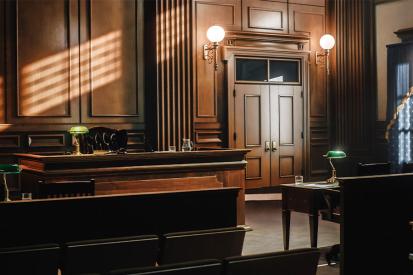Pre-Enforcement Challenges: Protecting Your Rights Before the Government Takes Them Away


Challenging unjust laws that violate constitutional rights is a hallmark of civil-rights litigation. But many wonder whether the government must enforce an unjust law against you before you’re able to protect your rights. In other words, does the government have to punish you or violate your rights before you can challenge a law?
For well over 100 years, the answer has been a resounding “no” thanks to what are known as pre-enforcement challenges.
What are pre-enforcement challenges?
Pre-enforcement challenges are lawsuits brought by individuals who fear that the government will use a law to violate their constitutional rights. Even if the law has not yet been enforced against the individual, courts allow pre-enforcement challenges when a law could potentially violate a citizen’s rights in the present or pose a substantial or impending risk of injury in the future.
For example, individuals have filed pre-enforcement challenges against laws that regulate speech on topics including politics, video games, unions, animal welfare, pornography, advice to foreign terrorist groups, and war. Groups across the ideological spectrum have also brought pre-enforcement challenges against laws that prohibit polygamy, limit abortion, ban sanctuary cities, regulate immigration, preserve voter integrity, restrict gun ownership, and protect women’s sports.
The history of pre-enforcement challenges
Beginning in the mid-19th century, American courts began to hear cases challenging potential public nuisances (like building noisy factories next to quiet neighborhoods) before they became actual nuisances.
As early as 1887, the U.S. Supreme Court affirmed its ability to hear cases about future injuries in Mugler v. Kansas. Since then, the Court has heard a pre-enforcement action in every decade since the year 1900 and has ruled on at least 13 pre-enforcement cases since 2013. Here are some significant cases relating to pre-enforcement challenges:
- Pennsylvania v. West Virginia (1923): The Supreme Court ruled that “[o]ne does not have to await the consummation of threatened injury to obtain preventive relief. If the injury is certainly impending, that is enough.”
- Pierce v. Society of Sisters (1925): The Supreme Court struck down a law requiring minors to attend public school two years before it was intended to go into effect.
- Epperson v. Arkansas (1968): The Supreme Court invalidated a state law prohibiting the teaching of evolution even though “there ha[d] never been even a single attempt by the State to enforce it” for the 40 years after the law was passed.
- Doe v. Bolton (1973): This was the companion case to Roe v. Wade and involved abortion providers, among others, who challenged Georgia’s pro-life law claiming it “chilled and deterred” their practices.
- Steffel v. Thompson (1974): In a case involving the distribution of flyers protesting the Vietnam War, the Supreme Court wrote, “it is not necessary that petitioner first expose himself to actual arrest or prosecution to be entitled to challenge a statute that he claims deters the exercise of his constitutional rights.”
- Virginia v. American Booksellers Association (1988): In a case challenging a law regarding the sale and display of sexually explicit material, the Supreme Court said, “We are not troubled by the preenforcement nature of this suit. The State has not suggested that the newly enacted law will not be enforced … We conclude that plaintiffs have alleged an actual and well-founded fear that the law will be enforced against them. Further, the alleged danger of this statute is, in large measure, one of self-censorship; a harm that can be realized even without an actual prosecution.”
- Mobil Oil Corp. v. Attorney General of Virginia (1991): The U.S. Court of Appeals for the 4th Circuit ruled, “Public policy should encourage a person aggrieved by laws he considers unconstitutional to seek a declaratory judgment against the arm of the state entrusted with the state’s enforcement power, all the while complying with the challenged law, rather than to deliberately break the law and take his chances in the ensuing suit or prosecution.”
- Brown v. Entertainment Merchants Association (2011): Groups representing the video game industry challenged a law restricting the sale of violent video games to minors, even though this law did not go into effect until months later. The U.S. Supreme Court ultimately invalidated the law.
- 303 Creative v. Elenis (2023): Graphic designer Lorie Smith successfully challenged Colorado’s misuse of its public-accommodation law, which officials used to compel her speech and force her to say things inconsistent with her beliefs.
These cases reflect just a few examples of the hundreds of pre-enforcement lawsuits Americans bring each year challenging laws that they believe violate their constitutionally protected rights.
Who uses pre-enforcement challenges?
Individuals as well as a wide variety of advocacy organizations from across the ideological spectrum bring pre-enforcement challenges to protect a broad range of interests. These groups include the American Civil Liberties Union, the Southern Poverty Law Center, the Human Rights Campaign, Planned Parenthood, the National Association for the Advancement of Colored People, the People for the Ethical Treatment of Animals, the National Rifle Association, the Institute for Justice, the Becket Fund for Religious Liberty, and many others.
Alliance Defending Freedom has also filed pre-enforcement challenges throughout our nearly 30-year history to protect Americans’ First Amendment rights. Some of ADF’s pre-enforcement cases include:
- Ensuring churches are free to operate consistent with their faith
- Preserving artists’ ability to create freely, consistent with their beliefs
- Protecting pro-life pregnancy centers from being forced to advertise for abortion
- Defending religious schools’ ability to teach in accordance with their faith
- Preventing states from censoring private conversations between clients and their counselors
Conclusion
In a free and just society, no one should have to be punished before they can challenge a law they believe to be unconstitutional. Pre-enforcement challenges provide a legal path for all citizens to defend their constitutional rights against unjust laws without risking crippling fines or jail time.
Pre-enforcement challenges should continue to be celebrated as a way to secure freedom and keep government power in check.

